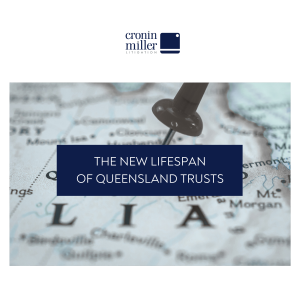No one likes to think about what happens after they’re gone. However, the truth is, if you die without a Will in Queensland, the law decides who gets your money, property, and belongings, not you. This process is called “intestacy”, and it can lead to tricky and often unexpected results for your loved ones.
The Statistics on Estate Planning in Australia
In Australia:
-
Only 24% of adults having an up-to-date Will (meaning that around 19.5 million Australians do not have an up-to-date Will).
-
Around 59% of adults do not have an Enduring Power of Attorney in place (this appoints someone to make decisions for you if you lose capacity).
-
Around 61% of parents have not nominated a guardian for their minor children.
These figures show how common it is for people to leave their estate unplanned, making it even more important to understand what happens if you die without a Will.
Who Inherits Your Property if You Die Without a Will in Queensland?
Every state and territory in Australia has its own intestacy laws. In Queensland, the rules depend on your family situation.
Spouse Only: Your Partner Gets It All
If you are married, in a civil partnership, or in a de facto relationship, and you have no children, your spouse will generally inherit your entire estate.
Spouse and Children: Assets Are Split
Once children are in the picture, things get more complex:
-
Your spouse will inherit all of your personal belongings (furniture, jewellery, etc.), plus the first $150,000 from your estate.
-
The balance: If you have one child, your spouse and child split the rest equally (50 / 50). If you have more than one child, your spouse gets one-third of the remaining estate, and the rest is shared equally among the children.
This can leave a surviving partner with less than expected, especially if most of the estate value is tied up in the family home.
Only Children: Divided Equally
If you have children but no spouse, the law divides your assets equally among your children. If one of your children has already passed away, their share goes to their children (your grandchildren).
No Spouse, No Children: The Next in Line
If there are no partners or children, your estate is divided equally between:
-
Your parents.
-
If your parents are deceased, your siblings.
-
If your siblings are deceased, your nieces and nephews.
-
If there are none, your grandparents.
-
If there are no grandparents, your aunts and uncles or their children (your cousins).
If you have no surviving relatives, the government inherits your estate.
Other Complications When There’s No Will
In addition to the standard intestacy rules — there may be other complicating factors, such as:
-
Someone making a claim against your estate.
-
The treatment of superannuation death benefits or family trusts.
-
Cases where there is more than one spouse (yes, it happens).
-
Disputes over whether someone is a ‘de facto’ spouse.
-
The involvement of stepchildren.
It can also be more complicated for your loved ones to obtain Letters of Administration — the Court’s authority to administer your estate — without a Will.
Case Study: Shock Death of a Parent Without a Will
Cronin Miller Litigation recently assisted a young family where a father died suddenly without a Will. The family home, in the father’s sole name, was the only substantial asset in the estate. The surviving spouse was in the difficult position of having to pay a large sum to the two children to meet legal obligations, which could have forced her to sell the home.
We applied to the Court on her behalf, seeking Orders to vary the inheritance so the mother could keep the home. As the children were under 18, a litigation guardian had to be appointed to protect their interests.
While we were successful, the process was incredibly stressful for the family during one of the worst times in their lives.
The Bottom Line: Make a Will to Protect Your Loved Ones
Writing a Will is the best way to ensure your wishes — not the law — determine your legacy.
The experienced team at Cronin Miller Litigation can help you prepare a comprehensive estate plan that considers all your assets, financial interests (including superannuation), and personal circumstances.
Contact our team today to leave your loved ones the most valuable gift — certainty and protection for their future.
Source: Estate Planning in Australia, Charles Sturt University and University of Adelaide, 2017



